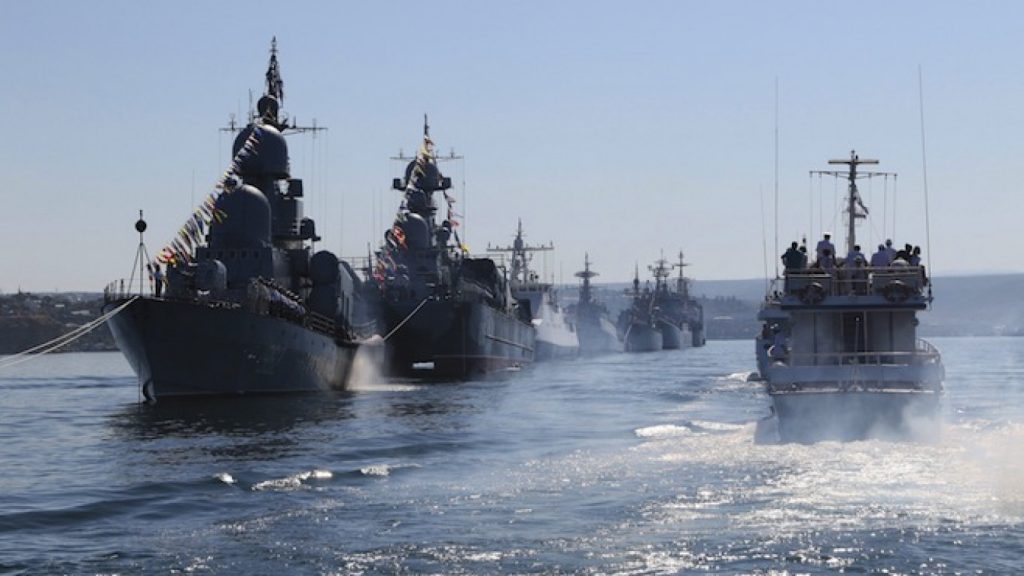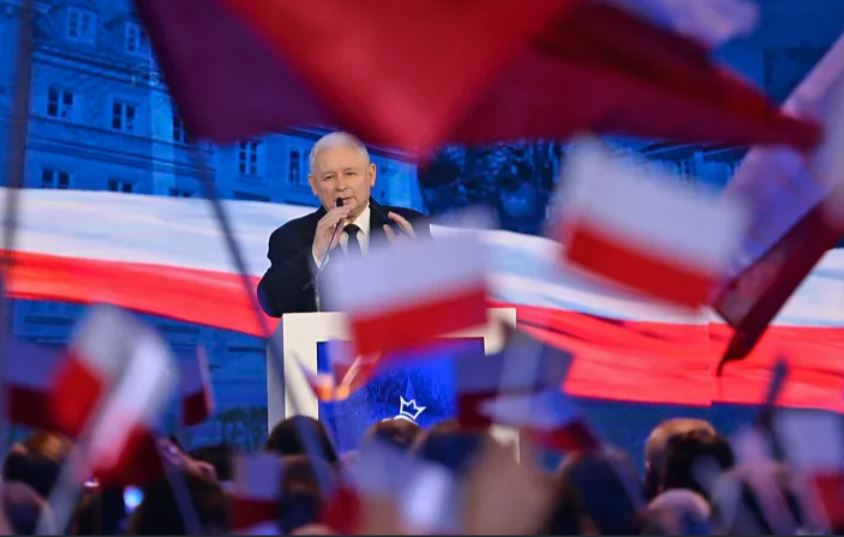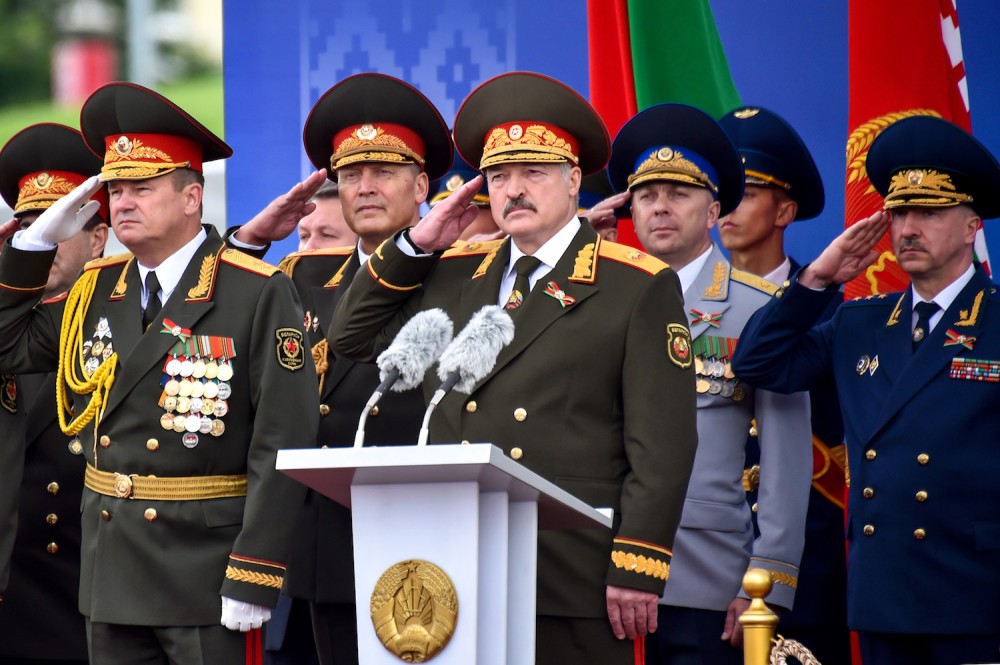Author: Jared Feldschreiber
Looking ahead to the aftermath of the current migrant crisis on Poland’s borders, CEA Magazine turns to Dr. Bryc to dissect relevant foreign affairs themes, approaches, and motivations of a most unpredictable region. In this EXCLUSIVE CEA Magazine interview, Dr. Bryc analyzes Poland’s unique political-diplomatic landscape, which for over a decade, has been largely predicated by domestic concerns. While there persists an inherent rebellious streak by its ruling Law and Justice (PiS) party, its controversial stances have often been polarizing to a good chunk of Polish society. This has created an unholy chasm with its opposition and nearly half of the nation’s voters.
CEA: Why and how is the current migrant crisis best be classified as a hybrid war? How best can the European Union or NATO rebuff such a threat as this one?
Dr. Agnieszka Bryc: The current crisis on the Polish-Belarusian border is a so-called hybrid war, but I do not prefer this term. Calling actions below the threshold of war blurs the definition of war. Nevertheless, these are hybrid actions as they are aggressive but based on international law. In this way, [Belarusian strongman Aleksander] Lukashenko cannot be accused of violating the UN Charter. The West is not defenseless in the face of this type of migration blackmail by Belarus, and indirectly by Russia.
CEA: So how can the EU fight this aggression?
Firstly, sanctions are an obvious instrument. Secondly, Poland and more broadly, the West, can fully close their borders for goods exported toward Belarus and block them from the Society for Worldwide Interbank Financial Telecommunication – or SWIFT — system. Thirdly, Lukashenko’s international recognition could be withdrawn and the Belarusian opposition abroad could be recognized as the country’s de facto state representation. This is a radical measure, but Lukashenko and [Russian President Vladimir] Putin only understand the logic of force. Fourthly, [the EU] should also hit Russia [with sanctions] because it is Moscow that stands behind Minsk. In other words, they should hit Lukashenko’s protector.
A compromise with Lukashenko’s regime will end the crisis, but only for a short while. He and Putin will take this concession as a sign of European weakness. According to the Kremlin’s logic, any weakness is to be exploited. Therefore, the next migration crisis is just a question of time and location.

Photo credit: Ministry of National Defence of the Republic of Poland
CEA: Would you consider the migrant crisis as an albatross around the neck of Europe ever since 2015? How does Putin always control the narrative when it comes to the EU’s crises?
Dr. Bryc: The migrant crisis is yet another piece of evidence that escalation in relations with the West is an effective pressure tool. The annexation of Crimea by Russia demotivated the West – I am speaking here of NATO and the EU. Dialogue, normalization, and reset without any specific conditions for Russia are all perceived as signs of weakness of the West, which, as I stated earlier, will be exploited by the Kremlin. Moscow perceives international politics in terms of a “who-whom” [system] rather than the Western “win-win” way of thinking.
Putin is evaluating the limits of the West’s endurance each time. He escalates the problem, waits for a response, and then pushes the red line even further. For instance, there used to be cyberattacks penetrated on former Soviet Union republics. Today, they have been conducted also against the United States. In the past, the Kremlin exerted gas pressure on Ukraine. Today it is also used against Moldova and other European countries. In 2008, [these types of pressures] led to a war with Georgia, in 2014 with Ukraine, and in 2015, it started an intervention in Syria.
CEA: So where do you foresee the next crisis?
Dr. Bryc: There are many indications that the Black Sea basin is being the new hot spot. Putin can take advantage of any frozen conflict.
CEA: Will continued sanctions by the EU ever deter Belarus or Russia as European banks continue to lend money to their countries’ officials?
Dr. Bryc: Sanctions make sense if they are well-targeted. Over time, they begin to produce results. To be effective, they must influence Minsk’s calculations. In other words, they must make aggressive behavior by Lukashenko’s regime unacceptable. I understand that sanctions are not nuclear weapons as they are calibrated. Nevertheless, we cannot introduce sanctions, and at the same time, allow financing of an aggressive regime.

Photo credit: Pavel Rebrov, Reuters
CEA: It has been reported that migrants have been trapped in no man’s land. How can politically-minded watchers make sense of this if there are no official media allowed there to capture it fully?
Dr. Bryc: There is [not a specific] ‘no man’s land’ on the borders. There is either a territory where Belarus or Poland is legally responsible. The migrants are on the Belarusian side, and they have been trapped in the sense that Lukashenko’s services push them towards the border with Poland. Thus, the legal responsibility is still on the Belarusian regime. The lack of media access to the border on the Polish side [is that it has created a scenario where] foreign media will only be allowed to report on the side to which they have access. It is an obvious mistake by Poland. Poles cannot make any complaints that CNN or other foreign media present the picture in which they are seeing.
CEA: So, what do news television viewers currently see and name another specific mistake Poland has made?
Dr. Bryc: They see migrants being pushed to the fence on one side and rows of Polish soldiers on the other. A mistake that burdens Poland, in terms of its image, is its lack of will to ask for Frontex’s help. This creates an image by Poland that it wants to hide its brutality.
CEA: Is a mistake such as this one due to the notion that Poland’s governing party’s approach to diplomacy is predicated by its internal political concerns, and with its base?
Dr. Bryc: The PiS government prioritizes domestic politics. They fear being criticized by its anti-European electorate and are afraid to go too deeply in cooperation with the European Union. In the eyes of its voters, it has created an image of Brussels as akin to “a new Soviet empire lurking at Polish sovereignty.”
PiS has strong competitors, such as Solidarity Poland, Ziobro’s party, and Konfederation, and all of whom are right-wing and anti-European Union. As absurd as it sounds, the EU is an instrument of domestic policy. PiS’s diplomacy has become hostage to its domestic policy. Therefore, many of Poland’s crises with the EU countries and the USA are a result of “Polish-Polish clashes,” and inner party wars. As for NATO, the border crisis attracts media attention, but it does, and will not make NATO “send in its cavalry.” Of course, Article 4 of the NATO Charter – such as consultation talks — makes sense and contrasts with Article 5, which highlights the notion of casus belli – that means an act or situation that provokes or justifies war.
Let us remember that Belarus has committed hybrid war, and therefore below the threshold of war. However, Belarus and Russia can effectively be deterred by NATO. Recently, the Russians have felt alarmed by an increased military presence of NATO forces in the Black Sea, and by the North Atlantic Alliance’s intensive maneuvers near the Russian coast. This is not an exaggeration to suggest that the Black Sea is of fundamental importance in rebuilding Russia’s military posture.

Photo credit: Alik Keplicz, AP Photo
CEA: Is it fair to say that Lukashenko rejected the European Union aid package last year because it was contingent on whether he would lessen his grip on power?
Dr. Bryc: A year ago, Lukashenko did not accept the aid package because the protests after the falsified elections were going on already for several months, and relations with the West were in crisis. Secondly, the €24,000,000 were funds that were supposed to go to the country’s citizens, especially to civil society, youth, and small and medium-sized enterprises. And these are, in Lukashenko’s logic, finances meant for subversive activities within his country. For Lukashenko, civil society and opposition are combined. He was at war with them.
CEA: What happens to the various Belarusian dissidents in countries, like Poland, that already received political asylum? Will they be soon used as bargaining chips?
Dr. Bryc: Of course! Even when the migrant crisis on the border ends, Poland will not cease to be seen as an enemy symbol by the Belarusian regime’s propaganda campaign. As for the opposition activists that found a safe haven in Poland and other European countries, even if they are not repressed by the regime, their families in Belarus will be. Families left at home are the easiest bargaining chips far by any authoritarian regime.
CEA: Will BRICS, which Putin’s Russia set up about 12 years ago, play a part in strengthening Lukashenko’s regime? Do you foresee these countries, Brazil, India, China, and South Africa, monetarily helping Lukashenko?
Dr. Bryc: We overestimate the role of BRICS. It was supposed to serve one day as an alternative to Western financing, but it has largely failed to fulfill Putin’s expectations. Not only this structure but also other BRICS-like institutions, such as the Shanghai Cooperation Organization, were quickly dominated by China, although at the very beginning, they had also been set up by Russia’s inspiration.
BRICS may indeed continue to support Moscow financially, but I am not convinced whether it would be so keen on supporting Belarus and risking sanctions simultaneously. Not to mention Beijing has also become disillusioned with the Belarusian economy, whose attractiveness has been diminishing recently, and due to sanctions, but generally because of all the administrative obstacles, like weak infrastructure and its brain drain. At the end of the day, Belarus has resigned itself to Russia, which is ready and more precisely made to help the Lukashenko regime to survive.
CEA: Poland is currently seeking aid from the European Union and NATO even after Deputy Prime Minister Jarosław Kaczyński appeared to adopt a “We can handle this ourselves” approach. How can these corollary ideas reconcile themselves?
Dr. Bryc: Jarosław Kaczyński and the PiS party continue to create an image of “we can handle this ourselves.” This is for internal use that is meant for the right-wing electorate. At the same time, the PiS government keeps trying to gain support from its foreign partners primarily in the diplomatic arena. Here, in turn, they use the argument that it is not only Poland’s border but also the EU’s. It is in this fact that must oblige Brussels to support Warsaw in putting pressure on Minsk and Moscow.

Photo credit: Sergei Gapon, AFP/Getty
It is well known that the Polish government does not recognize Lukashenko as a legitimate president, as most of these bridges have already been burned [between the two governments]. Vis-à-vis Russia, it is Moscow that is not willing to conduct a dialogue with Warsaw. Unless it has an interest in the PiS government, supporting Russia is suspending its membership in the Council of Europe. Frankly speaking, the ability to persuade Minsk or Moscow is close to zero, so Warsaw is doomed to European backing.
Nonetheless, the PiS government believes that these issues should be dealt with by NATO. There is a reason that the message is militarized and the situation on the border is presented by its pro-government media as “categories of war.” This picture will be used in the coming parliamentary elections with the argument: “We saved the country and Europe from the aggression of Lukashenko’s regime.”
Relying on the EU might also be easily used by Kaczyński’s critics to expose the hypocrisy of the PiS government. In 2015, when the south of Europe was facing the wave of more than a million migrants, Poland rejected the relocation mechanism. Imagine this: the PiS party is exposing itself to reproach to ask for the same type of help even after it did not give to the European countries six years ago. So, it is a better strategy [in PiS’s thinking] to present as adopting the line that it alone will “handle this ourselves.” That is the current government’s logic of which the Solidarity movement was born.
CEA: Lastly, do you believe that Belarusian emigrés are carrying multiple loyalties in Poland that may be helping Lukashenko and Putin?
Dr. Bryc: Of course! This cannot be ruled out especially since the Belarusian services are operationally run like the Russian ones. They certainly try to place their agents abroad among the opposition groups. It is a routine activity. Their task is not only to monitor the movement but also to break it down from within.
That is why Poland and other European countries should strongly support the Belarusian opposition communities in their territory and protect their leaders by counterintelligence and support them in their political activity. In other words, they should give them real shelter. The success of the Belarusian diaspora will serve as strong motivation for Belarusians who remained in the country and to not give up. It will also prove that a better Belarus is possible, and, most importantly, some people will make it happen.
Photo credit: President of Russia – Kremlin

Dr. Agnieszka Bryc, an assistant professor at the Nicolaus Copernicus University in Toruń, Poland, specializes in all aspects of international diplomacy and security. With an emphasis on Russia, the Cold War, and the Middle East, Dr. Bryc is also a frequent commentator within Polish media and serves as a moderator of the series of timely debates known as “na Koszykowa.” Her distinguished academic credentials exhibit all pertinent geopolitical concerns, which have made her a leading and authoritative voice to cover matters of infinite importance for Poland’s politicos.
Twitter: @AgnieszkaBryc
Photo credit: global.waw.pl



